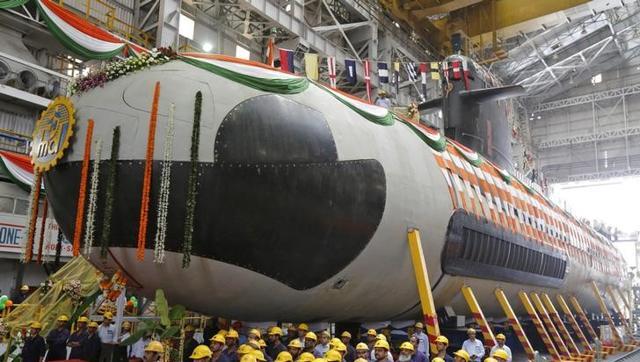Scorpene submarines' combat capabilities data leaked
Wed 24 Aug 2016, 11:23:46

The French shipbuilder which earlier this year won a A$50 billion ($38.06 billion) contract to build Australia's next generation of submarines has suffered a massive data leak, raising doubts about the security of one of the world's biggest defence projects.
France's DCNS Group beat out Germany's ThyssenKrupp AG and a Japanese-government backed bid by Mitsubishi Heavy Industries and Kawasaki Heavy Industries , in a blow to Japanese Prime Minister Shinzo Abe's push to develop defence export capabilities as part of a more muscular security agenda.
The leak, which was first reported in The Australian on Wednesday, contains more than 22,000 pages outlining the secret combat capability of six submarines that DCNS has designed for the Indian Navy.The documents cover the Scorpene-class model and do not contain any details of the vessel currently being designed for the Australian fleet.
"As a serious matter pertaining to the Indian Scorpene programme, French national authorities for defence security will formally investigate and determine the exact nature of the leaked documents," a DCNS spokeswoman said in a statement.
"The matters in connection to India have no bearing on the Australian submarine programme which operates under the Australian government's arrangements for the protection of sensitive data."A spokesman for the French embassy in Canberra declined to comment when reached by Reuters. A spokesman for the Indian High Commision in Canberra also declined to comment.
Australian Prime Minister Malcolm Turnbull sought to deflect concerns about the
leak, touting the high security standards in Australia, where the submarine will be built. The Australian reported that the leak occurred in France in 2011.
leak, touting the high security standards in Australia, where the submarine will be built. The Australian reported that the leak occurred in France in 2011.
"But clearly, it is a reminder that, particularly in this digital world, cyber security is of critical importance," he told the Seven TV network.The breadth of detail in the documents creates a major strategic problem for India, Malaysia and Chile, all of which operate the same submarine, an Australian political source with decades of experience in the global arms industry told Reuters.
Excerpts published in redacted form on the newspaper's website contained highly sensitive details of the submarine including technical manuals and models of the boat's antennae.
"If it's 22,400 pages, it's a major stuff-up," the source said. "It's a huge deal.
"It allows them to understand everything about the submarines. What speeds it can do; how noisy it is; what speeds the mast can be raised at ... all of that is just devastating."Japan had been seen as early frontrunners for the contract, but its inexperience in global defence deals and an initial reluctance to say it would build in Australia saw it slip behind DCNS and ThyssenKrupp.
Tokyo called the decision "deeply regrettable" and demanded an explanation from Australia of why its bid failed.
The leak comes as Australian Defence Minister Marise Payne announced that she would visit Japan this week for meetings with her Japanese counterpart, Tomomi Inada, the first visit by an Australian defence minister since the winning bid was announced.
No Comments For This Post, Be first to write a Comment.
Most viewed from International
Most viewed from World
AIMIM News
Latest Urdu News
Most Viewed
May 26, 2020
Do you think Canada-India relations will improve under New PM Mark Carney?
Latest Videos View All
Like Us
Home
About Us
Advertise With Us
All Polls
Epaper Archives
Privacy Policy
Contact Us
Download Etemaad App
© 2025 Etemaad Daily News, All Rights Reserved.



.jpg)






.jpg)
.jpg)








.jpg)
.jpg)
.jpg)
.jpg)
.jpg)

















